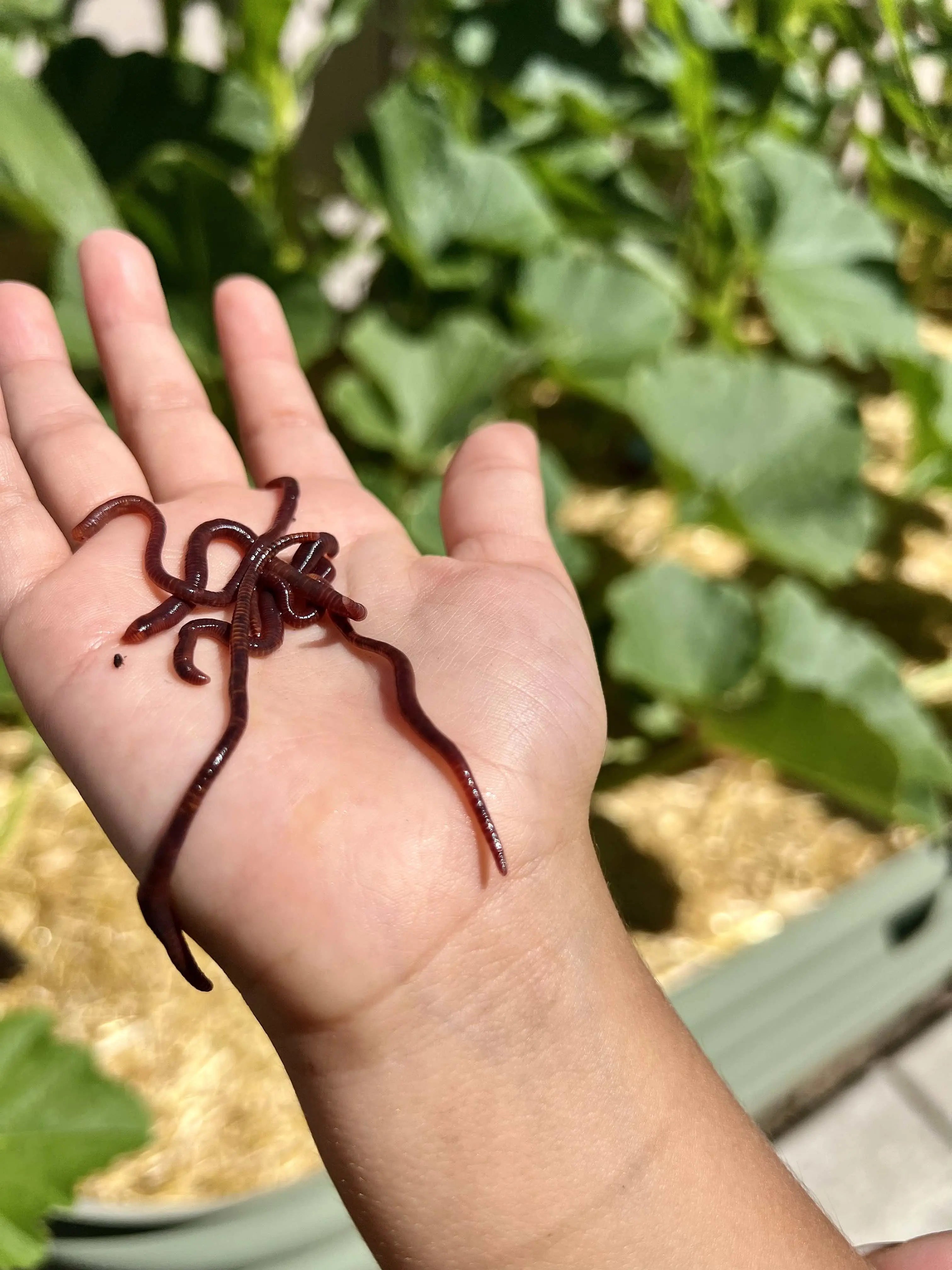Maximize Lawn Growth with Effective Products from Red Wiggler Express
Maximize Lawn Growth with Effective Products from Red Wiggler Express
Blog Article
Open the Keys of Red Wigglers: Your Overview to Composting Success
The assimilation of red wigglers right into composting practices offers a substantial chance for enhancing dirt health and advertising sustainability. Comprehending their needs and actions is vital for optimizing their possibility, from setting up an appropriate worm container to feeding them the best products.

What Are Red Wigglers?
(Red Wiggler Express)Red wigglers, clinically referred to as Eisenia fetida, are a varieties of earthworm mainly used in composting due to their impressive ability to decay organic issue efficiently. These worms are identified by their reddish-brown coloration and a fractional body, generally gauging between 3 to 4 inches in length. Unlike other earthworm species, red wigglers grow in abundant, natural atmospheres, making them excellent for vermicomposting systems.
Indigenous to The United States And copyright, they are usually discovered in decomposing leaves and compost heap, where they play an essential duty in nutrient recycling. Their adjustment to living in a damp, cardio environment allows them to eat large quantities of natural waste, damaging it down into nutrient-rich castings that improve dirt wellness.
Red wigglers replicate swiftly, with a solitary worm qualified of generating numerous cocoons each week, each consisting of numerous hatchlings. Recognizing the biology and actions of red wigglers is necessary for optimizing their possibility in composting applications.
Advantages of Utilizing Red Wigglers
Taking advantage of the power of red wigglers in composting uses many benefits that enhance soil health and advertise lasting waste monitoring. These exceptional organisms effectively break down raw material, changing kitchen area scraps and yard waste right into nutrient-rich vermicompost. This ended up item is extremely useful for plant growth, as it boosts dirt structure, increases dampness retention, and boosts nutrition availability.

(Red Wiggler Express)In addition, the existence of red wigglers in your composting system can speed up the composting procedure, producing high-quality garden compost in a fraction of the moment compared to standard methods. The spreadings generated by these worms are likewise including valuable bacteria that further enrich the dirt ecosystem.
Setting Up Your Worm Bin
Developing a reliable worm container is a simple procedure that can considerably enhance your composting efforts. Worm containers can that site be made from plastic storage space bins, wooden boxes, or commercially readily available worm containers.
Next, prepare the bed linen material, which serves as the worms' habitat. A mix of shredded newspaper, cardboard, and coconut coir works well, supplying a comfy atmosphere for the worms.

Feeding Your Red Wigglers
To make certain the health and wellness and productivity of your red wigglers, it is vital to supply them with a balanced diet regimen that satisfies their dietary requirements. Red wigglers thrive on a varied array of natural materials, which not only supply needed nutrients but additionally promote efficient composting.
Begin by including kitchen scraps such as vegetable peels, fruit cores, and coffee grounds. Prevent citrus fruits, onions, and garlic, as these can be damaging to worm health. In addition, introduce shredded paper, cardboard, and dry fallen leaves to develop a well-aerated environment.
Feeding regularity should be kept an eye on; generally, worms can take in half their body weight in food weekly. It is crucial to prevent overfeeding, as excess food can bring about unpleasant odors and bring in pests. A great technique is to add food in percentages, permitting worms to process it before presenting extra.
Maintaining wetness degrees is additionally important; the bed linen should perspire however not soaked. Last but not least, be sure to on a regular basis examine the temperature and pH levels of the bin to make sure an optimum setting for your red wigglers, inevitably enhancing their composting efficiency.
Harvesting and Using Compost
An effective composting process with red wigglers culminates in the abundant, dark garden compost referred to as vermicompost, which can considerably enhance dirt health and wellness and plant growth. Harvesting this nutrient-dense product normally happens every three to 6 months, depending upon the size of your system and the quantity of organic matter being refined.
To harvest, delicately different the compost from the worms and any kind of undecomposed materials. One effective approach includes relocating the components of the bin away and adding fresh bed linens and food to the void, motivating the worms to migrate. After a couple of days, the compost can be accumulated from the opposite side.
It is important to use vermicompost correctly to maximize its advantages. By including vermicompost into your gardening program, you not just reuse natural waste but likewise produce a thriving ecosystem that sustains sustainable gardening methods.
Final Thought
In summary, red wigglers serve as extraordinary allies in composting efforts, transforming organic waste right into nutrient-rich vermicompost. By recognizing the optimum problems for their environment, feeding demands, and compost harvesting techniques, garden enthusiasts can boost dirt health and wellness and promote plant vitality.
Report this page